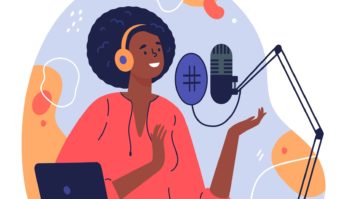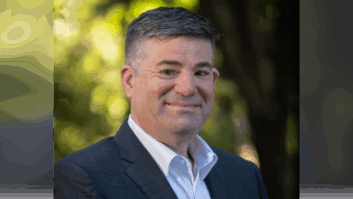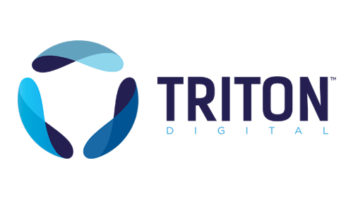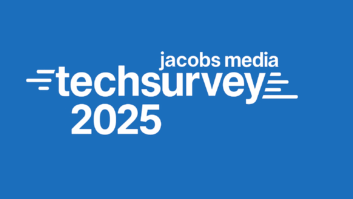
Todd Cochrane is an undisputed titan of podcasting.
His company, Blubrry/RawVoice, created the PowerPress podcasting plugin that powers nearly 60,000 podcasting sites; it is an open source WordPress plugin that is free to the public. PowerPress host these podcasts while providing its podcasters with listenership statistics, while Blubrry provides publishing tools and services for podcasters to build their brands.
BluBrry/RawVoice is based in Columbus, Ohio and has 12 employees. It has 345,000 shows in its podcasts directory, and provides hosting, stats service, or access to BluBrry’s PowerPress plug-in to 75,000 of them using cloud-based servers. (“We are profitable and have been so since we started business in 2005,” said Cochrane.)
Blubrry also provides advertising opportunities for podcasters, where the podcaster gets paid 70 percent of any ad revenues and Blubrry gets the other 30 percent. Overall, Cochrane’s Blubrry team and user tools interact with 75,000 podcasters worldwide.
“We have the largest privately-held podcast portal on the internet, with over 325,000 shows listed,” said Cochrane.

Thanks to this portal, BluBrry/RawVoice can compile and offer detailed metrics to their customers and the industry on podcasting.
“They can also tie in listener demographics to form a perfect picture of each show’s audience, provide data on the listening platform used [mobile /desktop], the duration of time listened, plus unique and download totals that are of value to advertisers,” he said.
RawVoice offers this data in two flavors: a basic free package for podcasters using the service and detailed data for the bulk of its professional customers. They also provide enterprise services to companies such as ABC, ESPN and Moody Radio to name a few.
If the above isn’t enough to cement Cochrane’s status as a podcasting titan, consider the following: As the host/executive producer of the tech podcast “Geek News Central” — online since October 2004, and about to hit show #1130 — Todd Cochrane was one of the first people to make money from a podcast.
His commercial success included attracting GoDaddy as one of the first-ever podcast advertisers. (GoDaddy still advertises on his podcast.) In 2005, Cochrane wrote “Podcasting: The Do-It-Yourself Guide” — widely acknowledged as the first book written about podcasting — and founded both the People’s Choice Podcast Awards and the Tech Podcast Network.
And by the way, Cochrane was one of the first inductees into the Podcast Hall of Fame.
Even for the most seasoned of broadcasters, Cochrane’s achievements would be noteworthy. But they are amazing considering that he is a self-taught podcaster who got into the business by accident.
It all began when the career Navy officer seriously injured his back.
“I had spent 24 years fixing and flying airplanes, when my injury sidelined me from doing my regular work,” Cochrane said. “Since the U.S. military has a philosophy of putting you out to pasture if you can’t be productive, I got myself an out-of-town assignment babysitting some airplanes that were under modification.”
Bored in his hotel room during off-hours, and already an avid internet tech hobbyist, Cochrane discovered some of the first podcasts offered.
“I was hooked,” he said. “So I went across the street to a store, bought a $14.95 Labtec microphone, plugged it into my laptop, and started producing what is now ‘Geek News Central.’”
Since that time, Cochrane’s production facilities have been upgraded. “Although you can record a podcast on any kind of small audio recorder or laptop, I do use a professional-level production studio,” he said.
When he started out, Cochrane had no expectations of making a living from podcasting and podcast consulting.
“Even today, many of the podcasts that Blubrry hosts only make enough to cover a dinner out, or maybe the rent if they are doing well,” he said. “But others who have built their brands by attracting listeners and advertisers are doing quite well — and I am making a full-time living from it.”
Cochrane believes his success as an active podcaster is central to the value of Blubrry/RawVoice’s podcasting analysis and marketing advice.
“There is a knowledge that comes from being in the business that can’t be faked,” he said. “I understand things about podcasting that people who haven’t been behind the mic just can’t.”
Speaking of analysis, Cochrane’s team has compiled some interesting data of what is popular in podcasts today.
“By far the most dominant category in production is faith-based podcasting; not just from Christian churches, but across all faiths,” he said, based on Blubrry’s own content categories. “Sports is also huge, followed by comedy and technology.” Other podcasting categories show slow, steady growth, with arts-based podcasts having the lowest number of shows.
For radio stations wanting to repurpose their morning shows online, Cochrane offers this advice: “Rather than divide three-hour drive into three one-hour podcasts, instead simply select the best short spoken word sections and compile them into two to three short 10-minute podcasts,” he said. “This way, you highlight the most lively parts of your show, entertaining your on-demand audience while giving them a reason to tune in on radio.”
Cochrane also recommends that radio stations have their talent produce original content, establishing new podcasts. “This gives listeners another reason to download them and to connect with your brand.”
He is as active and enthused about podcasting today as he was in the beginning. “There’s a huge opportunity for forward-thinking radio stations to extend their brands into podcasting,” he concluded. “All it takes is the willingness, effort and time to make it happen.”







